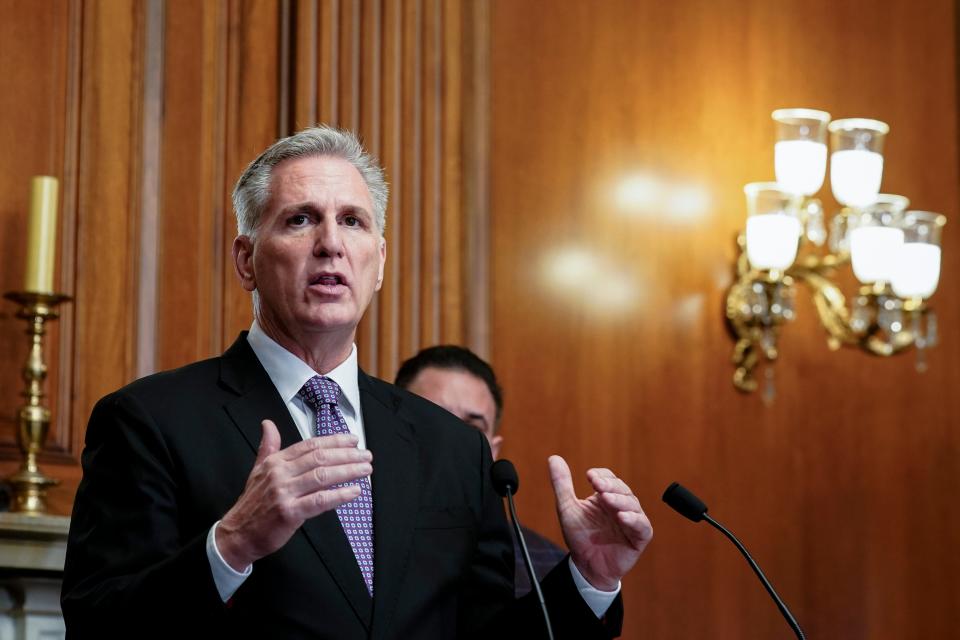A government shutdown deadline is hours away. Here's how it affects you
WASHINGTON- As Congress remains engulfed in spending fights and no closer to passing a stopgap measure, thousands of Americans are anticipating losing their jobs, child care and benefits in the face of a potential government shutdown just hours away.
A shutdown would not only impact federal workers but families who rely on WIC benefits and Head Start programs for childcare, members of the military, visitors to national parks and more.
The last government shutdown was in 2018 under the Trump administration and lasted for 35 days. During that period, some government contractors had to skip mortgage payments to forgo needed medicine while the aviation industry dealt with the disruption of the hiring and training of air traffic controllers, among other effects.
Here’s what the shutdown fight means for you.

What will happen to your SNAP and WIC benefits?
The Supplemental Nutrition Assistance Program, commonly known as SNAP, will continue for at least the month of October, Secretary of Agriculture Tom Vilsack said in a press briefing Monday. But he warned that “if the shutdown were to extend longer than that, there would be some serious consequences to SNAP.”
Funding for the Special Supplemental Nutrition Program for Women, Infants, and Children − better known as WIC − will stop “immediately when the shutdown occurs,” he said.
The U.S. Department of Agriculture has a contingency fund that may extend the program for a day or two, and some states may have leftover WIC benefits not spent that could extend the program for a week or so in that state.
“But the vast majority of WIC participants would see an immediate reduction and elimination of those benefits, which means the nutrition assistance that’s provided would not be available,” Vilsack said.
What happens if you are a federal employee?
A government shutdown means all federal agencies and services officials that aren’t deemed “essential” have to stop their work and close their doors. Thousands of employees would be furloughed, which occurs when an employee is required to take a mandatory and temporary unpaid leave of absence from their work.
This could also have a significant impact on Americans. Government food assistance benefits could be delayed and some food safety inspections could also be put on pause.
"Essential" federal workers, such as those who work for the Federal Aviation Administration, would work without pay − but would receive backpay once a shutdown ends. Numerous subcontractors would be out of work and would not receive backpay.
Could your child lose access to their Head Start program on Oct. 1?
It depends. Some Head Start programs across the country receive their annual federal grant on Nov. 1 and in later months. At least 10 head start programs receive their funding on Oct. 1, according to Tommy Sheridan, deputy director of the National Head Start Association.
This means that as many as 10,000 students could lose access to the program, according to the White House.
However, Sheridan said that the programs’ end goal is to keep the door open for families and children, and that they are working to provide services in the event of a shutdown.
How would a shutdown affect student loan repayments?
Student loan repayments are restarting Sunday for more than 40 million Americans, but the White House and Education Department officials said Friday the process will continue according to plan – at least for a few weeks.
“If Republicans needlessly shut down the government, we anticipate that key activities and Federal Student Aid will continue for a couple of weeks,” said Zayn Siddique of the White House Domestic Policy Council in a press call Friday. “Federal Student Aid plans to continue to engage with borrowers to help them know their options, and will continue to support them in the coming weeks.”
But Siddique did warn that funding could run out.
“A prolonged shutdown, lasting more than a few weeks, could substantially disrupt the return to repayment effort and long-term servicing support for borrowers,” Siddique said.
Contributing: Marina Pitofsky, Alia Wong and Sara Chernikoff
This article originally appeared on USA TODAY: How would a government shutdown affect you? Here's what to know

